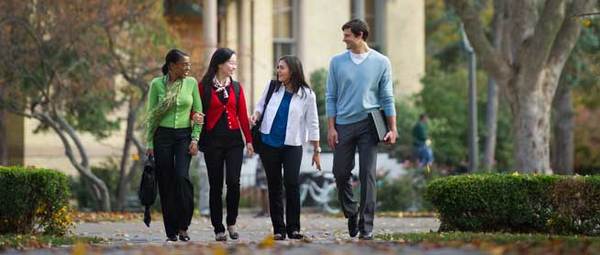
Potential applicants for our online data science master’s program often ask, “What makes a strong applicant?”
As the Admissions and Communications Coordinator for Notre Dame’s online MS-ACMS Data Science program, my role is to serve as a conduit between the applicants and the admissions committee, answering questions about our data science prerequisites and explaining the best ways to prepare a strong application.
In this blog, I’ll talk about what we look for in a strong applicant for our online master’s in data science program.
Applicants Who Will Succeed
We want people who can succeed in the program and the data science field.
Strong applicants are able to demonstrate that they have a passion to work hard and go on to be outstanding data scientists. That’s why we ask for a personal statement and two letters of recommendation that speak directly to each applicant’s fit for the program and their desire to be top-performers in their future careers in data science.
Your personal statement is much more than a summary of your resume. It’s your best opportunity to show us why you would make a great student and why you are motivated and passionate to set yourself apart as a leader in the data science field.
The program is designed to fit the schedule of working adults. Students take two courses per semester over a period of five semesters. In addition to in-class time, students need flexibility in their schedules for work outside of class.
The Necessary Technical and Math Skills
These may not be as extensive as you imagine; our program attracts people with a wide variety of backgrounds and disciplines. However, there are fundamental technical and mathematical competencies that will help you succeed in the program. Applicants should be able to demonstrate that they have:
- A deep understanding of math with three semesters of calculus and linear algebra.
- Experience in programming and data structures; they understand how computer programming works.
- Some professional communication experience.
In our recent information session, our Program Director, Roger Woodard, encouraged potential applicants to take our online readiness assessment to gauge their degree of preparedness. “This tool is available because we want to people to be able to decide for themselves if they are ready for this program,” Woodard explained. “It is free and results will not factor into any admission decision.”
We Look at the Whole Person — Not Just Academic History
I always tell prospective applicants that our admissions committee reviews their applications holistically. That’s why it’s important to give us a full picture of your academic accomplishments and your work experience in your application so we can see that you have the competencies to succeed in the program.
Since our program is a part-time program geared to working adults, some of our applicants have years of work experience where they have gained the skills in their jobs that they need to succeed in the program.
“We may have somebody who did not take a class in programming, but does a lot of programming in his or her job,” said Woodard, “and that would qualify them as well.”
Other applicants may have some non-traditional experiences that prepared them with the necessary technical or mathematical skills.
“If you can show us you have done some online courses that have prepared you with the competencies you need to succeed, then that is something we consider,” said Woodard. “We do admit people who don’t have that traditional background but do have some other sources of background.”
We Want a Mix of People in Our Program
We are not looking for a “cookie-cutter” student. We want people with strong work experience, and we also want people who may be just a few years out of school with strong coding and math skills. When we bring the two groups together with our faculty, we have a vibrant classroom where we all learn from each other’s experience.
“We want to keep the program small, admitting 40-45 cohorts for the fall,” said Woodard. “Our class sizes are intentionally small so we can focus on preparing students with the quantitative and communication skills, as well as the ethical foundation they need to be three-dimensional data scientists who are leaders in the field.”
As a strong applicant, your application will paint a picture for the admissions committee that shows you are prepared with the competencies to be a successful student in our online master’s in data science program and that you have the internal drive and ambition to go on to be a top-performing data scientist.
Learn more about how to make your application stand out by watching our Facebook Live event where Roger Woodard discusses the application and admissions process with data science faculty Dr. Steven Buechler, who serves on our admissions committee.
Download our application checklist for all of the details on our application requirements.